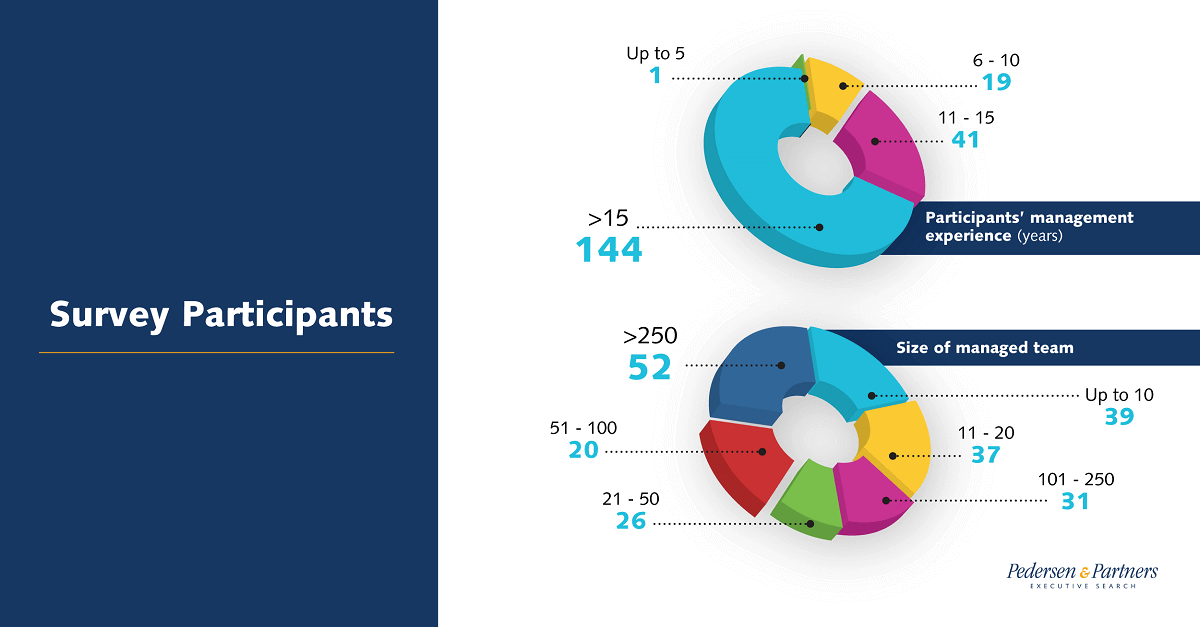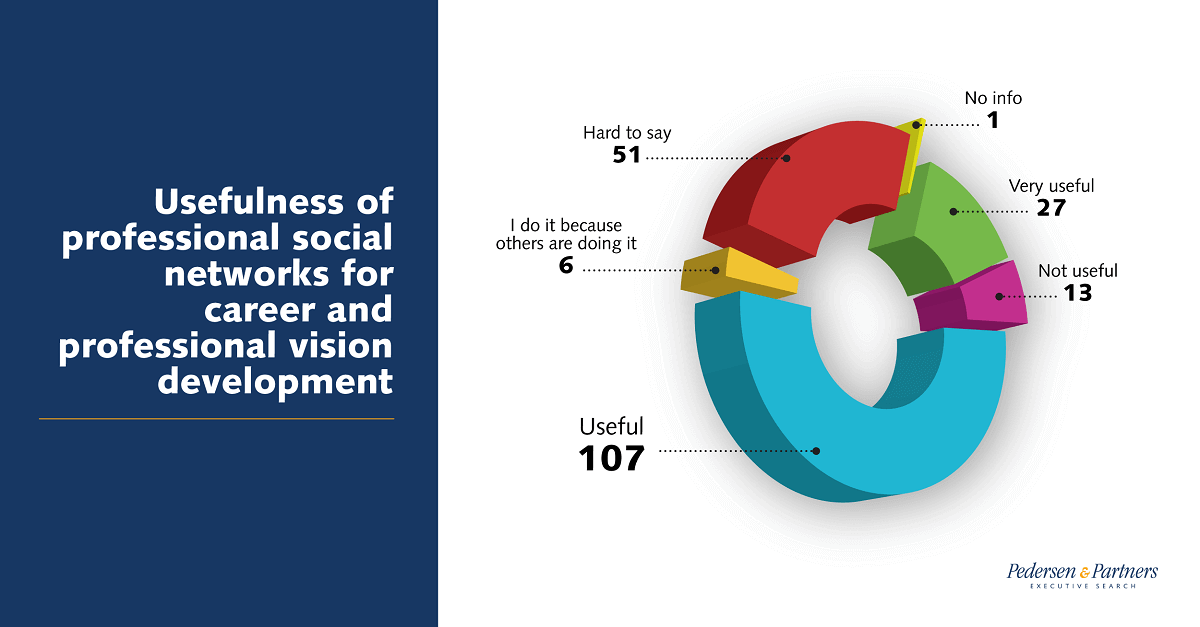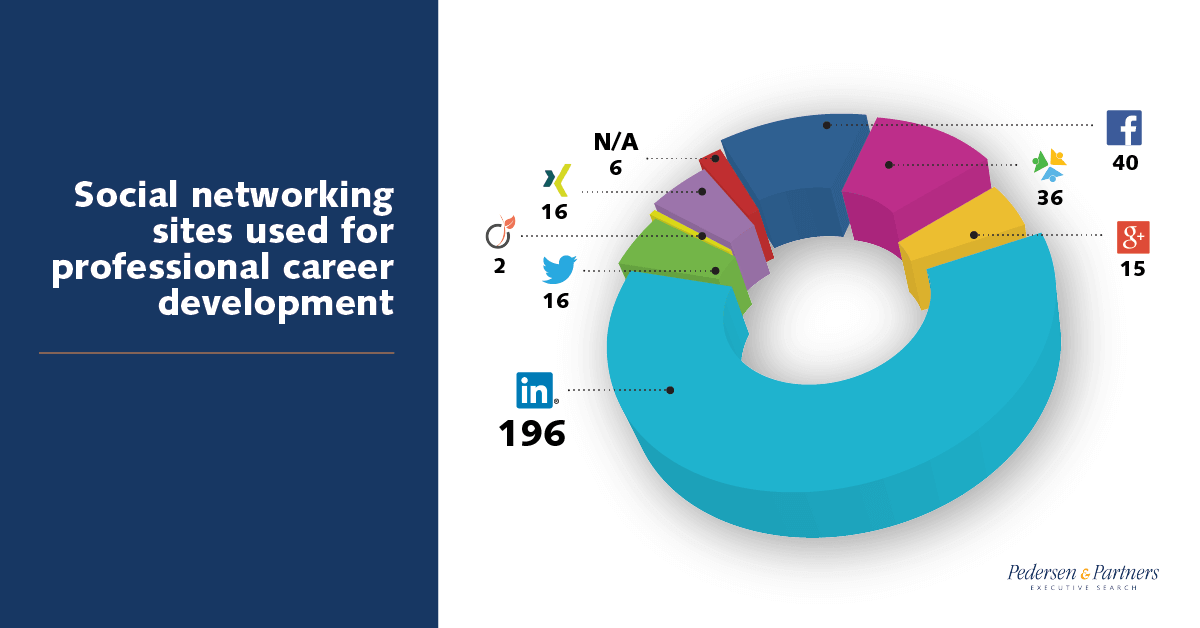Effective personal branding in business: fundamentals, “Harvard Business Review Poland”
Warsaw, Poland – The term "personal branding" is relatively new to the business world, and originates with the development of social media. However, business leaders have been carefully building and polishing their personal images for many years now, albeit not in an orderly or fully-conscious manner. Indeed, it was the development of social media that made a manager’s personal positioning on the Internet a key factor in making (or breaking) their career. We carried out a survey based on over 200 Polish executives at Managing Director level, in order to assess whether and how they position themselves online. (See the Survey Participants chart). We have statistically analysed their specific online activities compared to the number of job offers that they receive via social networking sites. We conclude that the number of proposals is affected by three activities statistically significant for employers: continuous self-reflection, developing a professional growth vision, and strategic networking.
Chart 1. Survey Participants

In 2015, 14 million Poles were active social media users, spending an average of two hours a day on platforms such as Facebook and LinkedIn. The popularity of these sites gives managers a low-cost tool that they can use to position themselves on the job market. In spite of this, a significant number of managers decide to stay off social media, generally citing a lack of time (which in practical terms means they consider this activity to be of minor relevance) and the desire to preserve their privacy as reasons. Unfortunately, information directly or indirectly relating to the executive will be available to others despite the lack of a social network – such information often appears on the Internet regardless of whether the person wants it there! It should be emphasized that (despite the opinion of many managers) opting out of social media platforms does not guarantee privacy, but allows other people to collect random knowledge about us without any control or accuracy. Careful use of social media, on the other hand, allows managers to finesse and present the exact information that they want potential clients to know.
Chart 2. Usefulness of professional networks

There is an important distinction between social media presence and market positioning. Market positioning is defined as the continuous and conscious process of managing information and contacts with current and potential business partners, employees and customers, through both electronic and direct channels. In our study we emphasize the influence of electronic channels, but we have found that online activity without constant self-reflection is not sufficient for effective positioning in the job market.
"I’m not looking for a job. Do I need job market positioning?" This is a question that Polish managers frequently asked until a few years ago. We must emphasize that the purpose of job market positioning is not to change jobs at this precise moment in your career, but to prepare the ground for the future. The effects of the positioning will not be visible for several weeks, or even months. Therefore, for job market positioning to be an effective method of career development, it must be a continuous process, and not aimed at achieving short-term benefits. Moreover, job market positioning does not necessarily target a new employer. Alternative goals include vertical and horizontal promotions, gaining new customers and extending cooperation with business partners.
Tools for Positioning
Our research clearly shows that managers mostly use the popular LinkedIn platform (see the Use of Social Media chart). On this basis, we can conclude that over the next few years, there will be no need for managers to simultaneously use several platforms to build their market positioning. If everyone is present on the same top platform, it is sufficient to focus on a conscious and well-prepared presence there. The “lack of time” argument ceases to be credible.
Chart 3. Use of Social Media

Manager’s Self-Reflection
Developing and updating your vision for your professional development is a difficult task to carry out alone. Our research shows that 92% of managers have some idea of the current stage of their career development, and their ideas for the future. However, moving around in a circle of your own ideas is insufficient – managers should consider themselves on the basis of objective external reviews. The study showed that people who work with a coach are most effective in the process of positioning (21% of responses). Coaching is an interactive process that helps single individuals or organisations to accelerate the pace of development and improve their effectiveness. With coaching, managers are able to verify their goals in discussion with a well-prepared external observer, optimise their actions, and improve their market positioning. Discussions with friends about career vision and development (33%) do not add as much value, as the friends are no more qualified than the manager. Managers also pointed to training and courses at work and outside of work (14%) as a source of self-reflection.
Vision for Development
Nearly half of the surveyed respondents believe that they have a vision for their professional development. However, we have noticed that this vision is not always reflected in the content of their profiles. Although this aspect has not been tested empirically as the data is not available, we think it is likely that profiles which lack vision are not effective for market positioning. It is often the case that managers post everything on their profiles, leaving the selection of relevant information to the reader, which is a poor strategy. It should be noted that a manager’s professional vision should be carefully reconsidered on a regular (yearly) basis, and accompanied by a profile update. Our research shows that the respondents update their profiles mainly after changing jobs. Although this is an appropriate time to update, it is nevertheless too infrequent.
Strategic Networking
Activities on social networks undertaken by managers can be divided into three categories:
1. Presentation (profile updates and posting);
2. Communication (sending messages, inviting people to groups of contacts);
3. Searching for information (about individuals, businesses).
Our study showed that the main activity among managers is communication, which includes sending invitations and messages (65%). Other areas of activity include: searching for information and people (25%), and content publishing and profile updating (19%). Our aim was to determine which online activities affect the number of offers for positions and cooperation that managers receive. We have analysed what is there to be done in terms of communication in order to obtain more offers. The feedback analysis shows that the key activity is to invite people outside of your immediate circle of friends. Your aim should be to avoid spamming with invitations, but to foster a focused and conscious connection with people from the industry who have similar areas of interest, and head-hunters of a given area of expertise. These activities can be qualified as strategic social networking; they may not bring immediate results, but in the long term they are effective for obtaining job and cooperation offers.
THE RESULTS OF THE SURVEY show that the most effective model of positioning on the market consists of three components: managerial self-reflection, a vision of self-development, and strategic networking. These elements combined together (and in that specific order!) increase the chances of obtaining job and cooperation offers through professional social media networking. However, this model is dynamic and requires regular activities, especially in the field of strategic networking and self-reflection. This approach allows the managers not only to consciously create and cultivate their image, but also to build awareness of their existence among key players in the market (employers, business partners, recruiters) and actively assist these users to reach each other.
Published by: Harvard Business Review Poland. Original title: “Jak pozycjonowanie w sieci wpływa na karierę menedżerów.”
Paweł Korzyński, Assistant Professor in the Department of Management at Kozminski University, a participant of the program "Visiting Fellow" at Harvard University; Dariusz Użycki, Head of Industrial Sector CEE & CIS at Pedersen & Partners (Executive Search) and a lecturer at the Warsaw School of Economics.
ABOUT THE STUDY: 206 Polish managers at Managing Director level have taken part in the study. The data was collected using an electronic questionnaire sent by Pedersen & Partners Executive Search.
Pedersen & Partners is a leading international Executive Search firm. We operate 56 wholly owned offices in 52 countries across Europe, the Middle East, Africa, Asia & the Americas. Our values Trust, Relationship and Professionalism apply to our interaction with clients as well as executives. More information about Pedersen & Partners is available at www.pedersenandpartners.com
If you would like to conduct an interview with a representative of Pedersen & Partners, or have other media-related requests, please contact: Diana Danu, Marketing and Communications Manager at: diana.danu@pedersenandpartners.com
